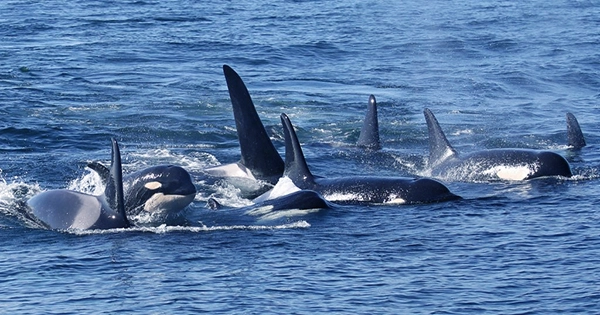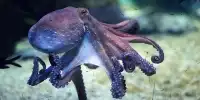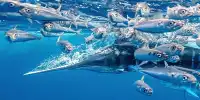Giving a human a fish is said to feed them for a day. Teach a human to fish, and you’ll reap the benefits for the rest of their lives – until orcas steal your catch. According to a recent research looking at orcas off the coast of the Crozet Islands in the southern Indian Ocean, they’re not only capable of stealing from boats and fisheries, but they’re also teaching each other how to do it. The experiment, which was published in the journal Biology Letters, set out to see if thieving from boats and fisheries was growing more widespread as the ocean’s resources deteriorated.
Orcas have long been nicking (or reclaiming, depending on your point of view) seafood from humans, but it was unclear whether this was becoming a more prevalent and widespread manner of obtaining food. To find out, researchers examined 16 years of killer whale monitoring data from 2003 to 2018, focusing on two subantarctic populations (Orcinus orca). They were able to analyze variations in the amount of orca “depredation” episodes, in which they essentially took fish back from fishing nets, lines, or easily accessible catch, using data from the dataset.
“The expansion of commercial [fishing] targeting Patagonian toothfish, Dissostichus eleginoides, in subantarctic waters in the 1990s was [related] with killer whale depredation happening in most fisheries, from southern Chile to the southern Indian Ocean,” the researchers said. “The Crozet Islands, where killer whales were documented depredating in the first year of the fishery in 1996 and today take roughly 180 tonnes of toothfish from longlines every year, have the highest incidence of this behavior.”
Since that first depredation complaint, records of orca theft have progressively climbed for both populations, which the researchers claim cannot be attributed to an increase in orca numbers. Instead, they believe it’s a sign that more orcas are learning how to steal from fisheries. After the first incident of orca theft in the area in 1996, the increasing rate of depredation occurrences reached a halt in 2014. This could indicate that it took 18 years for the entire population to catch on to the habit.
What is the path of spread? It appears that orca fishing lessons are in order, as these highly gregarious and clever marine creatures are more than capable of strategizing when it comes to locating food. They can even band together and take down the world’s largest animal, according to new studies, but why bother when you can steal from humans? “These findings illustrate how human-caused changes in prey availability lead to rapid, albeit progressive, adaptations in killer whales,” the study authors concluded, “likely altering the ecological role of this top-predator.”













